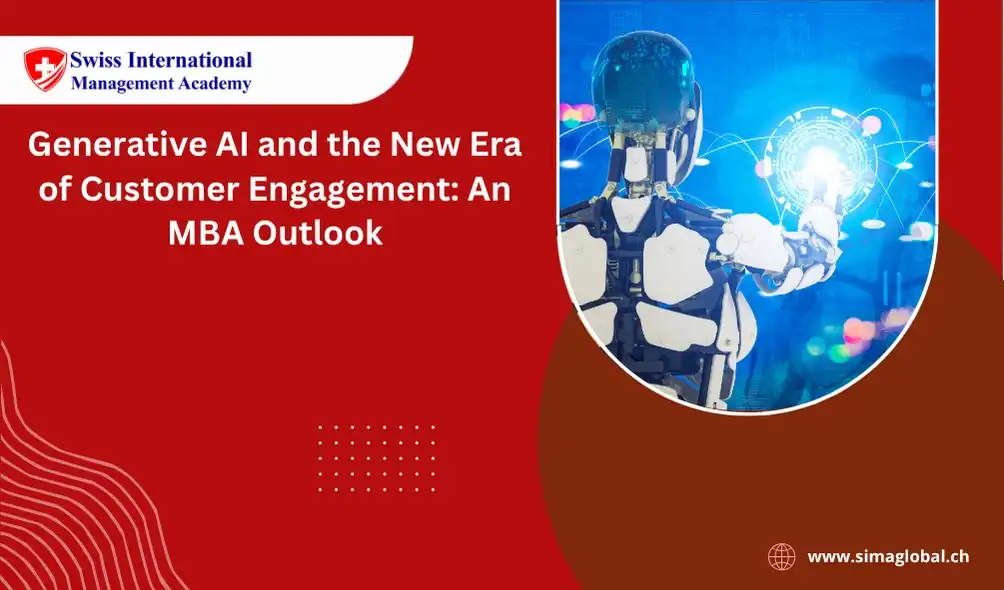“Redefining Engagement with Generative AI.”
In the evolving digital economy, customer engagement is no longer a linear journey—it is a dynamic, personalized experience shaped by data, technology, and real-time interaction. As businesses compete to deliver more relevant and engaging customer experiences, Generative AI (GenAI) is emerging as a game-changing force. For MBA students and professionals aiming to lead in marketing, strategy, or customer experience (CX), understanding the impact of generative AI is no longer optional—it’s essential.
What is Generative AI in the Context of Customer Engagement?
Generative AI refers to AI systems that can create new content, such as text, images, audio, video, and code, based on data and prompts. Tools like ChatGPT, DALL·E, and Google’s Gemini are already being integrated into customer-facing platforms, enabling hyper-personalized marketing, AI-generated product recommendations, automated content creation, and even real-time virtual assistants that can hold natural conversations.
This technology enables businesses to deliver more personalized, consistent, and scalable customer experiences, reducing human resource costs while improving engagement metrics.
Key Applications in Customer Engagement
AI-Powered Personalization:
Generative AI can analyze customer data to generate individualized product suggestions, dynamic website content, or tailored email campaigns. For MBA professionals, this represents an opportunity to craft marketing strategies that are data-driven and customer-centric.
Conversational AI and Virtual Assistants:
AI chatbots and voice assistants can now engage in human-like interactions, answering questions, resolving issues, and even upselling products—24/7. This improves customer satisfaction while providing valuable insights into consumer behavior.
Content Generation at Scale:
Brands can use generative AI to produce social media posts, ad copy, newsletters, or product descriptions—instantly and in multiple languages. For MBA marketers, this enhances the ability to scale campaigns without scaling costs.
Real-Time Customer Feedback Analysis:
AI tools can summarize customer reviews, support interactions, and social media mentions to provide actionable insights. This supports strategic decision-making, product development, and service improvements.
Strategic Considerations for MBA Graduates
While the benefits of GenAI in customer engagement are clear, MBA graduates must also consider the ethical and strategic implications. Issues like data privacy, bias in AI models, and maintaining authentic brand voice are critical. Future business leaders must balance innovation with responsibility, ensuring transparency and trust in AI-driven engagements.
Conclusion
Generative AI is not just transforming how businesses connect with customers—it’s redefining the entire experience. For MBA students and emerging business leaders, mastering the capabilities and strategic applications of GenAI will be a key differentiator in a competitive, digitally driven marketplace.


